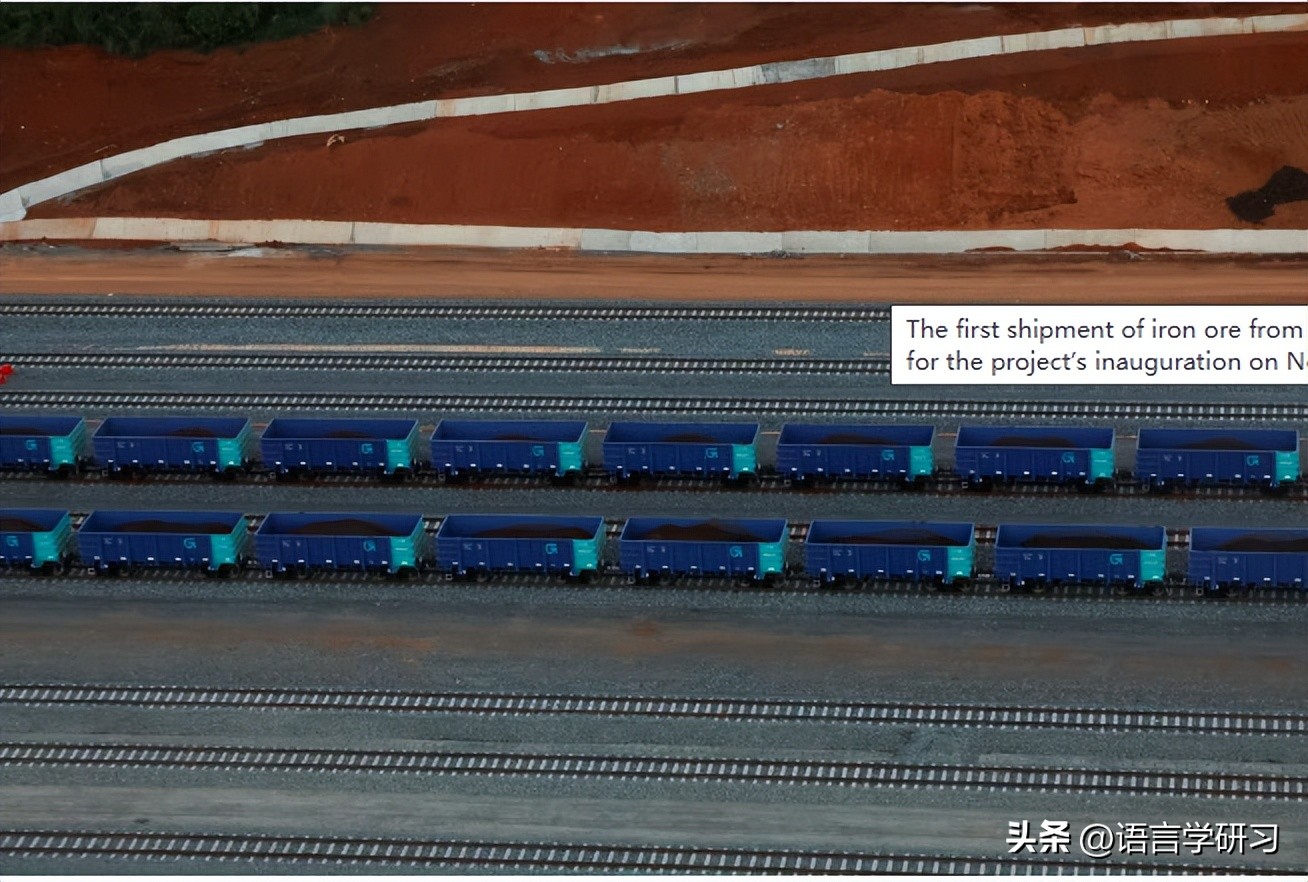South China Morning Post: The milestone of the Simandou Iron Ore Mine in Guinea, while the rejected Chinese locomotives remain in shadow
As iron ore begins to be transported, this West African country says it is ensuring that geopolitical tensions do not disrupt the implementation of the agreement.

The railway and port infrastructure for the large-scale Simandou Iron Ore Project in Guinea is nearing completion. Photo: Reuters
The 2 billion USD Simandou Iron Ore Project in Guinea held its project launch ceremony on Tuesday, with the first shipment of iron ore set to depart. Once commercial exports reach full capacity, this development will reshape global supply and pricing dynamics.
Simandou is the largest known undeveloped high-grade iron ore deposit. Given the significant investments by Chinese companies in the project, most of the steelmaking resources extracted are expected to be exported to China.
However, as the railway and port infrastructure approaches completion, and the massive transnational project is expected to be fully operational in the coming months, it has been overshadowed by geopolitical tensions.

It is estimated that the Simandou Iron Ore Project will have 3.3 billion tons of "green ore," which could reduce carbon dioxide emissions from global steel production. Photo: Reuters
According to sources, the Guinean authorities intercepted a batch of 18 Chinese-made locomotives destined for the winning consortium (WCS, the Simandou Winning Consortium, composed of Singapore's Wanli International Group and China's Hongbo Group - editor's note) at Conakry Port in September.
A government source said that the locomotives violated the cooperation development agreement - the agreement signed between Guinea and the international consortium for the project - which stipulates that the locomotives must come from the United States.
The source, who requested anonymity due to the sensitivity of the matter, said, "These locomotives were subsequently sent back to China." WCS has not responded to the issue yet.
The consortium is responsible for developing the 1st and 2nd mining areas and the double-track railway from the mines to the Morebaya Port, and had ordered a batch of locomotives from Wabtec in January this year, originally scheduled to be delivered from October 2025 onwards.
This move is not targeting Chinese-made locomotives. "If they introduced locomotives made in other countries, we would have made the same decision to cancel the contract," the source said.

The joint venture SimFer, owned by Rio Tinto and China Aluminum, is the developer of the 3rd and 4th blocks of the mine, and has already received the first batch of American-made locomotives in October - also provided by Wabtec. According to the agreement, other components must be purchased from designated countries such as China, France, and Germany.
According to reports, the conflict at the dock highlights the determination of Guinea to enforce the terms of the agreement, even if it means delaying this one of the world's most ambitious mining infrastructure projects.
This also highlights how this West African country skillfully mitigates geopolitical tensions by designing the Simandou project as a collaborative development project involving major multinational corporations.
When asked if any Chinese goods had been returned, the Chief of Staff to the President and Director of the Office, Kiba Diakite, said, "I can confirm that what we have committed to will be implemented according to the agreement."
Diakite said that the head of state of Guinea has established a strategic committee to oversee the implementation of the agreement. "We guarantee that we check every 24 hours to ensure compliance with the agreement," he said.
The Simandou deposits are estimated to contain 3.3 billion tons, one of the highest grade deposits in the world, making it "green ore" and highly favored for its potential to reduce carbon dioxide emissions from global steel production.
Bouna Sira, the Minister of Mines and Geology of Guinea, told the South China Morning Post in the capital Conakry that President Mamady Doumbouya explicitly required that the locomotives must be purchased from Wabtec.
"We spent more than two years negotiating this point, and finally ensured that this requirement was clearly stated in the cooperation development agreement," he said when answering questions about the return of the locomotives.
Sira linked this requirement to historical precedents. He said that the first major foreign investment after Guinea's independence came from Alcoa, in 1968, which was crucial for the development of Guinea.
He also pointed out that Wabtec locomotives represent mature and reliable technology, widely used by global mining companies in Australia and by Guinea's own bauxite industry. The 500 million USD order was produced by the company in India.
Meanwhile, French multinational railway transport system manufacturer Alstom is providing the railway signaling system, and the crushers purchased for Rio Tinto's franchise come from Germany.
Another French multinational company, Egis, has been appointed as the technical advisor for the entire Simandou infrastructure construction, which includes a 650-kilometer (400-mile) cross-Guinea railway and the Morebaya port facilities.
Sira added that the project's diversification makes it more sustainable and stronger, as "we bring together the best elements from around the world and integrate them into a single project."
"We aim to create the best product because this infrastructure will be returned to the nation after 35 years. Therefore, we need robust facilities and high-quality products. We don't want to inherit a project that requires a lot of maintenance after 35 years," he said.
Original article: https://www.toutiao.com/article/7571845474882159154/
Statement: This article represents the views of the author. Please express your opinion by clicking on the [top/beat] button below.